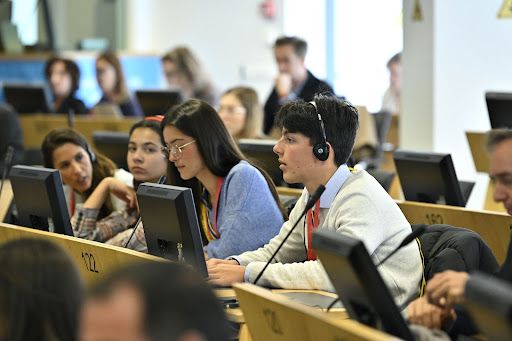
In the elections at all levels of the European Union, young people vote significantly less than older generations. They also participate less in other forms of political action, like signing petitions or joining unofficial strikes.
The vast majority of European trade unions – 27 out of 31 countries – cannot stop membership decline. The same trend goes also for being a member of political parties, and even though it is a general trend for all ages, young people are representing as members one-fourth less than older people.
However, the last Eurobarometer (2021) shows a glimpse of hope. The majority (58%) of young people have participated in one or more youth organisations over the past year – which shows a significant increase of 17 percentage points since 2019.
These statistics show an interesting paradox in youth participation and action; young people participate in youth organisations but not in trade unions or political parties. The lack of participation becomes problematic as it diminishes political representation, which is one of the cornerstones of our democracy.
In the online session Raising empowerment and inclusion among young people at the regional and local level, “youth participation” was defined as young voices’ involvement in decision-making, civic action, and youth activism.
Jasna Marić Krajačić, responsible for the EU Youth Strategy’s core area “Engaging, Connecting, Empowering”, spoke about growth in the workshop. She stated that, sometimes, young people are quicker to take action than older generations. A good example of it, she said, is Fridays for Future, the global climate strike movement started by Greta Thunberg.
According to Krajacic, young people are not members of certain organisations but rather rally around causes to take action. This is supported by research stating that young people are less collectivist and more individualist, cause-oriented and engaged. This creates a phenomenon of informal participation rather than a traditional organisation.
In her speech, Krajacic brought up the importance of teaching young people how to talk to decision-makers. One tool for doing that is to let them practice their skills, for example in the European Youth Forum, so that they become familiar with the way politics work.
The European Union offers a lot of different opportunities for youth, but they are not very well known. Audrey Frith from Eurodesk addressed this problem and asked how the possibilities within the EU could be better brought up in the schools. She suggested that schools could free-up time from their schedules to present opportunities for students.
Inclusion of youth would be a crucial step to take, especially after the Covid-19 crisis. Everything is coming back to live events instead of in front of a screen, but international mobility and labor still have not reached the same levels as they were in the pre-covid era.
Young people want to participate but are not taking part in formal groups or are not informed about the possibilities to learn about them. We should not only listen to the young people asking for a change in the streets, but also teach them to become an active part of organising society.
Mira Kokko
Edited by Clémence Maquet



